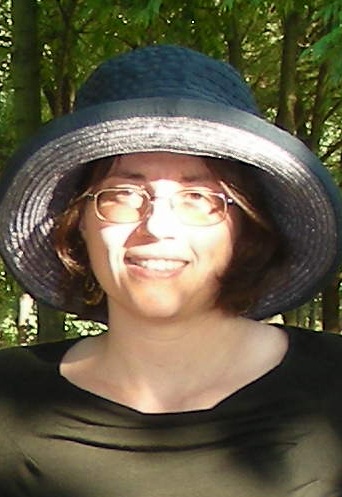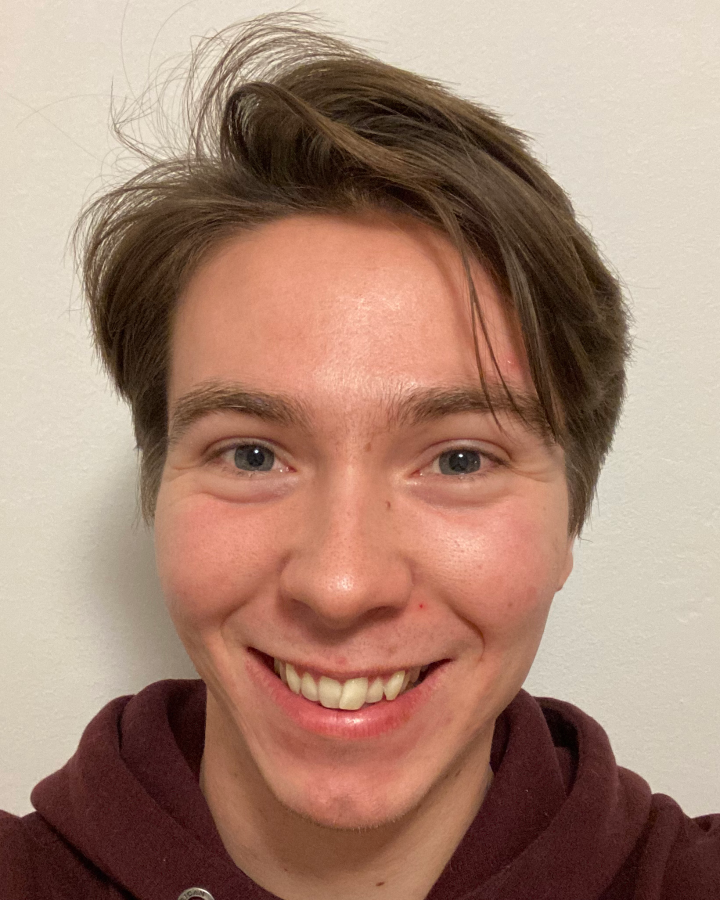Christian Huemer
Ao.Univ.Prof. Mag.rer.soc.oec.
Dr.rer.soc.oec.
Christian Huemer
- Email: christian.huemer@tuwien.ac.at
- Phone: +43-1-58801-18882
- Office: (1040 Wien, Favoritenstrasse 11)
- About: main scope: inter-organizational systems, conceptual modeling, ERP systems electronic data exchange, electronic billing
- Orcid:
- Keywords: Model Engineering, Electronic Data Interchange, E-Business, Service Sciences, Business Process Modeling
- Roles: Associate Professor
Publications
The development process of the UN/CEFACT modeling methodology
 Philipp Liegl
Philipp Liegl Thomas Motal
Thomas Motal Rainer Schuster
Rainer Schuster Marco Zapletal
Marco ZapletalKeywords:
Astract: The development of inter-organizational systems requires a well defined development process. UN/CEFACT's Modeling Methodology (UMM) provides such a development process. We served as the editing team of the UMM 1.0 foundation module, which is defined as a UML profile. First experiences of applying UMM in real world projects have disclosed some limitations. Accordingly, we propose integrating new concepts into a new version 2.0 of UMM. In this paper, we show the adapted UMM development process, which is demonstrated by means of a waste management example.
Huemer, C., Liegl, P., Motal, T., Schuster, R., & Zapletal, M. (2008). The development process of the UN/CEFACT modeling methodology. In Proceedings of the 10th international conference on Electronic commerce - ICEC ’08. Tenth International Conference on Electronic Commerce (ICEC08), Innsbruck, Austria. ACM. https://doi.org/10.1145/1409540.1409589
A model-driven top-down approach to inter-organizational systems: From global choreography models to executable BPEL
 Birgit Hofreiter
Birgit HofreiterKeywords:
Astract: Today, most approaches for inter-organizational business processes start bottom-up from the interfaces and the workflows of each partner described on the IT layer. Alternatively, one may start from the commitments and agreements between business partners to reach their complementary business goals. The latter approach is target of the UN/CEFACT Modeling Methodology (UMM), which models a global choreography. In a model driven approach the UMM artifacts must be further elaborated toward an IT solution for each participating business partner. For this purpose we have developed a UML profile to model a local choreography or an orchestration that respects the agreements made in the global choreography. In order to execute the local choreography / orchestration in the local IT, the processes must be machine-readable. For this purpose we demonstrate a transformation to the business process execution language (WS-BPEL).
Hofreiter, B., & Huemer, C. (2008). A model-driven top-down approach to inter-organizational systems: From global choreography models to executable BPEL. In IEEE Joint Conference on E-Commerce Technology (CEC’08) and Enterprise Computing, E-Commerce, and E-Services (EEE’08) (pp. 136–145). IEEE Computer Society. http://hdl.handle.net/20.500.12708/52257
Teaching Models @ BIG - How to Give 1000 Students an Understanding of the UML
 Martina Seidl
Martina Seidl Manuel Wimmer
Manuel Wimmer Michał Śmiałek
Michał ŚmiałekKeywords:
Astract: In this paper, we report our experiences on teaching the Unifi ed Modeling Language in the large. More precisely, about 1000 computer science and business informatics students attend our course Object-Oriented Modeling each year. Requiring a profound understanding of the
UML, many advanced courses like Software Engineering or Model Engineering build on the knowledge imparted by our course.
In order to achieve our ambitious teaching targets, we establish personal mentoring despite the mass enhanced with e-learning facilities.
Scholz, M., Seidl, M., Wimmer, M., Huemer, C., & Kappel, G. (2008). Teaching Models @ BIG - How to Give 1000 Students an Understanding of the UML. In M. Śmiałek (Ed.), Promoting Software Modeling Through Active Education, Educators Symposium Models’08 (pp. 64–68). Warsaw University of Technology. http://hdl.handle.net/20.500.12708/52264
Selecting business processes for automation by WFMS: An Evaluation Framework
 Horst Gruber
Horst GruberKeywords:
Astract: Workflow technology promises an increase in efficiency in the execution of business processes. The technology is widely accepted, but often the high costs exceed the promised benefits. This is due to the fact that companies do not carefully select the business processes for automation by workflow management systems (WFMS). They also implement processes that have an unappropriate structures for automation and/or that are economically irrelevant.
This paper presents an evaluation framework that enables a selection of appropriate business processes. Currently there does not exist any suitable evaluation framework. The framework considers criteria for technical feasibility, economic potential and organizational aspects. The scoring model based on these criteria follows a multi factor analysis and leads to a process-automation portfolio enabling the selection of appropriate business processes. The framework has been successfully used in the IT company of an banking corporation.
Gruber, H., & Huemer, C. (2008). Selecting business processes for automation by WFMS: An Evaluation Framework. In Proc. of BIR 2008 The 7th Int’l Conf. on Perspectives In Business Informatics Research (pp. 77–93). University Gdansk. http://hdl.handle.net/20.500.12708/52558
Exercises for Object-Oriented Modeling
 Martina Seidl
Martina Seidl Manuel Wimmer
Manuel Wimmer
Scholz, M., Seidl, M., Wimmer, M., Huemer, C., & Kappel, G. (2008). Exercises for Object-Oriented Modeling. Educators Symposium @ MODELS 2008, Toulouse, Frankreich, EU. http://hdl.handle.net/20.500.12708/84744
Teaching
Project in Computer Science 1
Semester: 2025S; Nr: 194.145; Type: PR; Hours: 4.0; Language: if required in English; View on TISSProject in Computer Science 2
Semester: 2025S; Nr: 194.146; Type: PR; Hours: 4.0; Language: if required in English; View on TISSOrientation Informatics and Business Informatics
Semester: 2024W; Nr: 180.766; Type: VU; Hours: 1.0; Language: German; View on TISSSeminar for Master Students in Data Science
Semester: 2024W; Nr: 180.772; Type: SE; Hours: 1.0; Language: English; View on TISSSeminar for Master Students in Business Informatics
Semester: 2024W; Nr: 180.779; Type: SE; Hours: 1.0; Language: English; View on TISSResearch Seminar
Semester: 2024W; Nr: 188.446; Type: SE; Hours: 2.0; Language: if required in English; View on TISSLiterature Seminar for PhD Students
Semester: 2024W; Nr: 188.512; Type: SE; Hours: 2.0; Language: German; View on TISSBachelor Thesis for Informatics and Business Informatics
Semester: 2024W; Nr: 188.926; Type: PR; Hours: 5.0; Language: if required in English; View on TISSScientific Research and Writing
Semester: 2024W; Nr: 193.052; Type: SE; Hours: 2.0; Language: German; View on TISSSoftware Engineering
Semester: 2024W; Nr: 194.020; Type: VU; Hours: 4.0; Language: German; View on TISSTechnology for People 2040
Semester: 2024W; Nr: 194.082; Type: VU; Hours: 2.0; Language: German; View on TISSProject in Computer Science 1
Semester: 2024W; Nr: 194.145; Type: PR; Hours: 4.0; Language: if required in English; View on TISSProject in Computer Science 2
Semester: 2024W; Nr: 194.146; Type: PR; Hours: 4.0; Language: if required in English; View on TISSSustainability in Computer Science
Semester: 2024W; Nr: 194.155; Type: VU; Hours: 2.0; Language: English; View on TISSProjects
Bankenabwicklungsmonitor (BAM)
Name: FMA - BAM; Title: Bankenabwicklungsmonitor (BAM); Begins On: 2024-05-13; Ends On: 2025-01-12; Context: Finanzmarktaufsicht (FMA); View Project WebsiteDatenanalyse-Tool für Datenauswertungszwecke - Ausbaustufe II
Name: FMA-AT4DAZ-Stufe2; Title: Datenanalyse-Tool für Datenauswertungszwecke - Ausbaustufe II; Begins On: 2024-01-01; Ends On: 2024-12-31; Context: FMA-Finanzmarktaufsicht; View Project WebsiteDatenanalyse-Tool für Datenauswertungszwecke - Ausbaustufe I
Name: FMA-AT4DAZ; Title: Datenanalyse-Tool für Datenauswertungszwecke - Ausbaustufe I; Begins On: 2023-12-05; Ends On: 2023-12-31; Context: FMA-Finanzmarktaufsicht; View Project WebsiteErforderlichkeit einer Datenbank für Analysezwecke
Name: FMA-DB; Title: Erforderlichkeit einer Datenbank für Analysezwecke; Begins On: 2023-10-16; Ends On: 2024-01-15; Context: FMA-Finanzmarktaufsicht; View Project WebsiteDigitale Kompetenzen @ Parlament
Name: DKP; Title: Digitale Kompetenzen @ Parlament; Begins On: 2021-04-01; Ends On: 2021-09-30; Context: Parlamentsdirektion; View Project WebsiteBIM in tunnelling
Name: BIM im Tunnelbau; Title: BIM in tunnelling; Begins On: 2020-07-01; Ends On: 2023-12-31; Context: Österr. Bautechnik Veranstaltungs G; View Project WebsiteInnovationslehrgang zur Gestaltung der Digitalen Transformation in der Produktentwicklung und Produktion
Name: DigiTrans 4.0; Title: Innovationslehrgang zur Gestaltung der Digitalen Transformation in der Produktentwicklung und Produktion; Begins On: 2016-09-01; Ends On: 2018-11-30; Context: Austrian Research Promotion Agency (FFG); View Project WebsiteSparx Systems Innovations Scheck Plus
Name: Sparx Systems InnovScheckPlus; Title: Sparx Systems Innovations Scheck Plus; Begins On: 2014-04-01; Ends On: 2015-02-16; Context: Austrian Research Promotion Agency (FFG); View Project WebsiteMulti-Tenant ERP System in the Cloud: A Model-Driven Approach Based on the Resource-Event-Agent Ontology
Name: REAlist; Title: Multi-Tenant ERP System in the Cloud: A Model-Driven Approach Based on the Resource-Event-Agent Ontology; Begins On: 2013-09-01; Ends On: 2015-08-31; Context: Austrian Research Promotion Agency (FFG); View Project WebsiteWeb of Needs INfrastructure
Name: WIN; Title: Web of Needs INfrastructure; Begins On: 2012-07-01; Ends On: 2014-10-31; Context: Austrian Research Promotion Agency (FFG); View Project WebsiteE-business Registry Permitting Enterprise Liaisons
Name: ERPEL; Title: E-business Registry Permitting Enterprise Liaisons; Begins On: 2010-05-01; Ends On: 2013-08-31; Context: Austrian Research Promotion Agency (FFG); View Project WebsiteRail track gauging Austrian Federal Railways
Name: SWITCH09; Title: Rail track gauging Austrian Federal Railways; Begins On: 2009-07-01; Ends On: 2009-08-31; Context: Berner & Mattner Systemtechnik GmbH; View Project WebsiteebInterface 3.0 - electronic invoicing
Name: ebInterface 3.0; Title: ebInterface 3.0 - electronic invoicing; Begins On: 2009-01-01; Ends On: 2010-02-28; Context: Austriapro c/o Wirtschaftskammer Österrecih; View Project WebsitePublic Private Interoperability
Name: PPI; Title: Public Private Interoperability; Begins On: 2008-10-01; Ends On: 2011-09-30; Context: Austrian Research Promotion Agency (FFG); View Project WebsiteBusiness Semantics on top of Process Technology
Name: BSopt; Title: Business Semantics on top of Process Technology; Begins On: 2008-04-01; Ends On: 2010-09-30; Context: Austrian Research Promotion Agency (FFG); View Project WebsiteebTransfer - Design and Realization of Know-How Transfer for electronic Billing based on ebInterface
Name: ebTransfer; Title: ebTransfer - Design and Realization of Know-How Transfer for electronic Billing based on ebInterface; Begins On: 2007-01-01; Ends On: 2007-11-30; Context: BM für Wirtschaft und Arbeit; View Project WebsiteTeam
Business Informatics Group, TU Wien
Professors
Christian Huemer
Ao.Univ.Prof. Mag.rer.soc.oec.Dr.rer.soc.oec.
Dominik Bork
Associate Prof. Dipl.-Wirtsch.Inf.Univ.Dr.rer.pol.
Gerti Kappel
O.Univ.Prof.in Dipl.-Ing.inMag.a Dr.in techn.
Henderik Proper
Univ.Prof. PhDResearchers
Aleksandar Gavric
Univ.Ass. MEng. B.Eng.
Galina Paskaleva
Projektass.in Dipl.-Ing.inDipl.-Ing.in BSc

Marianne Schnellmann
Univ.Ass.in BSc MScMarion Murzek
Senior Lecturer Mag.a rer.soc.oec.Dr.in rer.soc.oec.
Marion Scholz
Senior Lecturer Dipl.-Ing.inMag.a rer.soc.oec.
Miki Zehetner
Univ.Ass. DI Bakk.rer.soc.oec. MScSyed Juned Ali
Univ.Ass. BSc MScStudent-Staff

Florian Fankhauser
Projektass. Dipl.-Ing.Julia Smejkal
BSc






